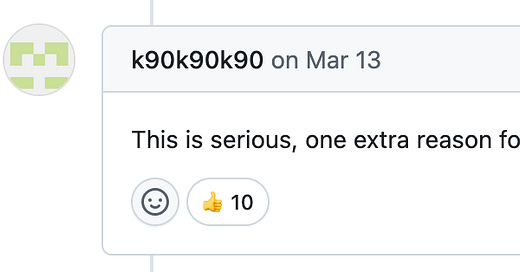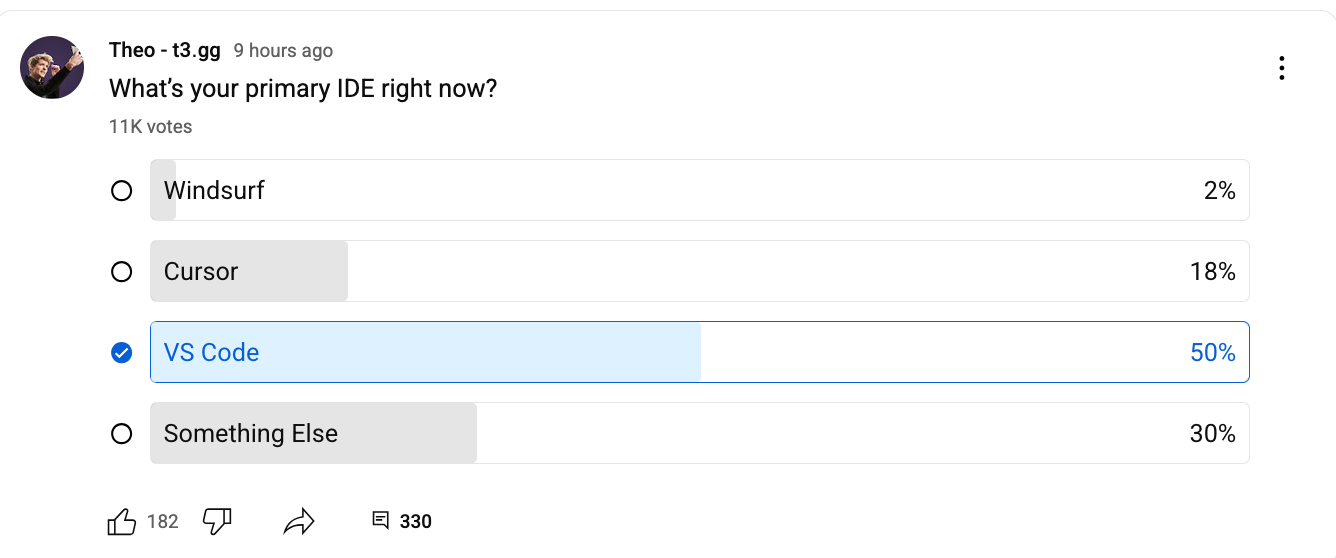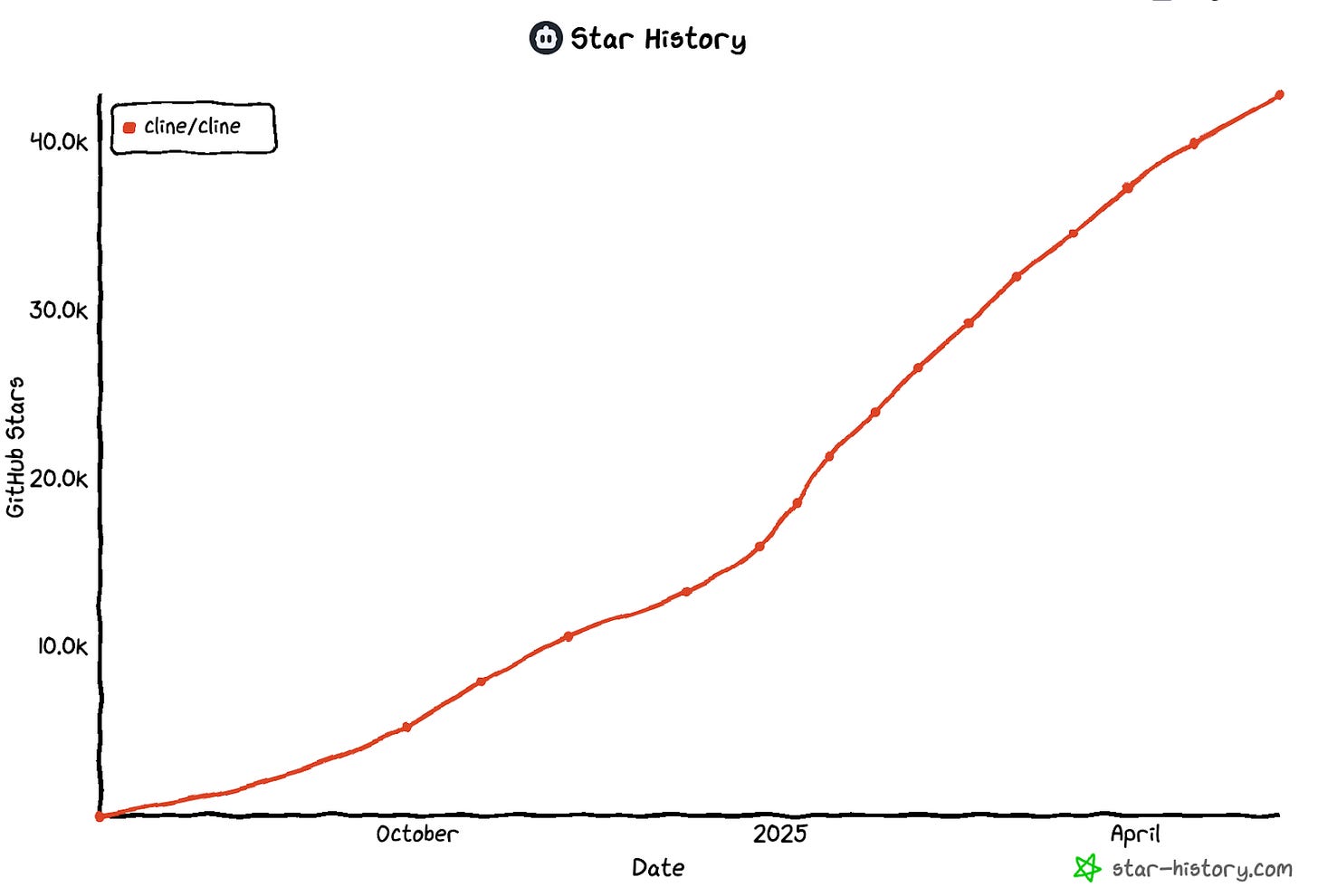Two days ago, Cursor, the most popular AI coding IDE on the market, has reportedly raised $900 million in funding.
Then yesterday, OpenAI acquired Windsurf, another leading AI coding IDE, for $3 billion.
Both Cursor and Windsurf are IDEs focused on AI-assisted coding, and both are forks of VS Code, an IDE by Microsoft.
And this is where things get complicated.
Microsoft Is Actively Sabotaging VS Code Forks
Microsoft recently restricted access to its extensions marketplace for VS Code forks like Cursor.
More specifically, it restricted Cursor/Windsurf from using up-to-date versions of extensions that many developers consider essential to their workflow – code linters, version control plugins, language-specific syntax highlighters, etc.
This is a serious issue, and I'm definitely not the only one concerned about it:
The implications: Security. Let me paint the picture with a concrete example.
In November 2024, a critical remote code execution vulnerability (CVE-2024-49050) was discovered in VS Code's Python extension. Microsoft quickly patched this in version 2024.20.0 of the extension. That is, the VS Code extension.
Months later (as of writing in May 2025), Cursor users remained stuck on Python extension version 2024.13.0 (or earlier) — a version confirmed to be vulnerable to this high-severity CVE.
This isn’t a one-off issue. Users are constantly reporting that multiple extensions in Cursor were consistently lagging behind their VS Code counterparts.
Microsoft Probably Won't Stop Here
That's why I think AI coding IDEs like Cursor face a grim future unless something dramatically changes (like completely decoupling from VS Code)
Microsoft recently launched Copilot "Agent mode" for VS Code users. Combined with their decision to restrict extension access, they're sending a pretty clear message to forks:
You're no longer welcome here.
Why Is Microsoft Doing This?
Theo, a well-known coding YouTuber, published a poll yesterday asking his dev audience about their primary IDE. The results (from 11,000+ votes) are telling:
Cursor is eating into VS Code's market share, and it's becoming impossible for Microsoft to ignore this.
What’s likely to happen next?
I predict that both Cursor and Windsurf will eventually move away from VS Code as their foundation. They'll likely start building their own ecosystems, possibly even developing an entirely new IDE from scratch.
This is ultimately good news for us developers. More competition means better products – at least that's my take.
(Open-source) VS Code extensions > (Closed-source) VS Code forks
Here’s the current situation: If you want to use Cursor, you’ll probably be frustrated with Microsoft’s recent breaking changes. Many of the extensions you’re used to will not work in Cursor.
Maybe you’re in the “VS Code” camp and don’t want to switch IDEs just to get some “AI coding” capabilities. At the same time, you most likely don't want to use tools (like Bolt) that claim the software profession is a "thing of the past" and that you won't need to write code anymore.
AI open-source VS Code extensions offer a good compromise (disclosure: Kilo Code falls into this category).
Cline and Roo Code are the clear leaders in this space – both are open-source, "agentic AI" coding extensions for VS Code that have seen rapid growth. This is the star history for Cline:
Cline grew from 5,000 GitHub stars in September 2024 to over 40,000 stars now. They reached 1 million installs on March 22nd and are now at 1.4 million.
Kilo Code (that’s us!) feature-merges Cline, Roo Code, and our own additions. We're not as big as Cline and Roo yet, but we've grown from zero to over 2,200 downloads in just one month. We're also fully open-source.
Why open source is (again) eating the world
The last Cursor release was almost a month ago.
The last Cline release was 4 days ago. The last Roo Code release was yesterday.
These are not small one-liner changes. For example, Cline introduced a new context preservation feature several days ago. Roo also recently introduced an “Orchestrator” mode which can drastically change your workflow.
There’s also a vibrant open-source ecosystem around those extensions (if you type “roo” into Github you’ll see at least 10 active Github repositories around a specific aspect of Roo.
This is the power of open source. And this is why I think open-source will outpace the (closed-source) Cursors of the world.






